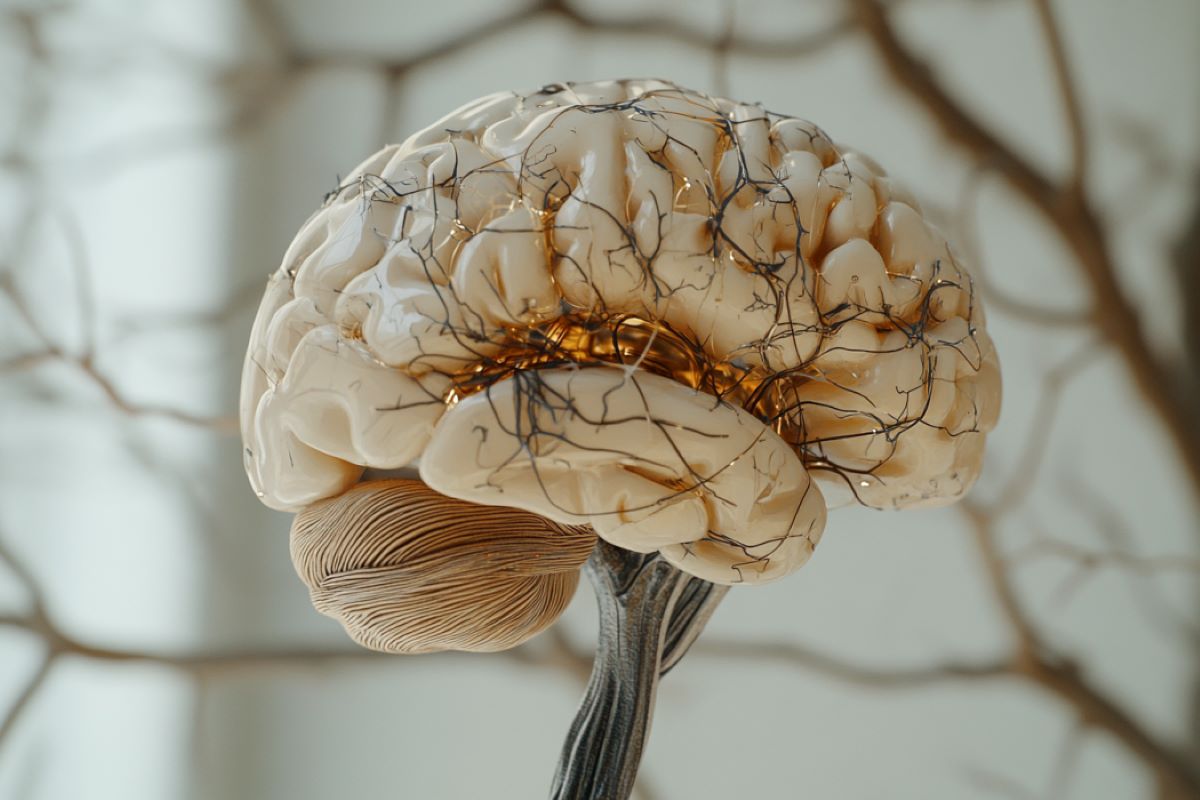With your brain fog post stroke your competent? doctor has had over a decade to create a protocol to prevent brain fog! Didn't do that did s/he? So, you don't have a functioning stroke doctor, do you?
Mental Fatigue Triggers Compensatory Brain Mechanisms
Summary: A recent study shows that prolonged mental exertion weakens connectivity between the brain’s frontal and parietal lobes, impacting cognitive efficiency. However, the brain has built-in compensatory mechanisms that adjust neural connections to preserve function under fatigue.
Researchers observed this in participants completing memory tasks of varying difficulty; while fatigue slowed performance on simple tasks, complex tasks triggered compensatory adjustments. Findings suggest that these mechanisms allow the brain to optimize resources based on task complexity.
Understanding how these processes work can have implications for enhancing productivity and mental resilience in high-demand scenarios. This research highlights the brain’s adaptability in managing limited cognitive resources under strain.
Key Facts
- Mental fatigue reduces functional connectivity between the brain’s frontal and parietal lobes.
- Compensatory mechanisms in the brain help maintain task performance under fatigue.
- Simple tasks slow under fatigue, but complex tasks can trigger compensatory adjustments.
Source: Scientific Project Lomonosov
Scientists from Immanuel Kant Baltic Federal University found out that prolonged mental load led to decrease of functional connectivity between frontal and parietal lobes of brain, that is followed by decrease of efficiency of information processing.
However, there are compensatory mechanisms that enable brain to maintain working capacity thanks to changes of configuration of frontoparietal net.
Results of the research are published in magazine IEEE Transactions on Cognitive and Developmental Systems.

Continuous work with great deal of information, for example, databases, documents and reports, demands high concentration. Active brain activity can lead to overwork and fatigue, that causes decrease of working capacity of brain.
However, researches show that in our nervous system exist so-called compensatory mechanisms – means to cope with fatigue.
At the same time, it is not completely clear how exactly a compensatory mechanism starts and works, and also how it influences different brain functions, in particular – memory.
Scientists from Immanuel Kant Baltic Federal University (Kaliningrad) made research how brain activity and perception of information change during continuous performing of cognitive tasks.
14 people from 18 to 22 took part in the experiment in which they during 70 minutes passed Sternberg test – a set of tasks for estimation of working memory. In frames of the test trial subjects had to memorize a set of 2-7 letters during 1,5-2,5 seconds.
Then a certain letter was demonstrated to the participants and they had to answer if the original set contained it. For this purpose, researchers divided all tasks into two blocks – “simple” that required memorization of sequence of 2-3 letters, and “complex” – of 6-7 letters.
In the course of research authors used functional near-infrared spectrography (fNIRS) for registration of hemodynamic activity of brain and method of eye movement recordings (eye-tracking) for analysis of visual perception. Scientists also offered participants to pass several tests on the level of fatigue in the form of questionnaires before and after the experiment.
According to results, level of fatigue of all participants after fulfilling tasks became significantly higher, however number of mistakes didn’t increase.
By this fatigue led to increase of time of fulfilment of tasks of low complexity, whereas length of fulfilling tasks of high complexity remained unchangeable during all course of experiment.
It tells about the fact that in the second case the intenseness reached such grade by which in brain started compensatory mechanisms of struggling with fatigue.
Observations of how activity of different areas of brain changed, showed that in the course of fulfilment of tasks and increasing of fatigue test people experienced weakening of functional connections between frontal and parietal lobes of brain cortex.
The importance of these connections for fulfilment of cognitive tasks is confirmed also by the fact that participants who coped with task from “complex” category better showed higher connectivity between frontal and parietal lobes.
Probably, the maintenance of these cooperations is a part of compensatory mechanism, that enables to struggle with fatigue.
“Because of limited resources brain has to optimize its work in order to cope with tasks efficiently, in spite of fatigue. Complex tasks require a greater control of attention and mobilization of additional resources for solving them.
“Simple tasks, on the contrary, can be successfully fulfilled with minimal efforts, thus enabling brain to save resources. That is why, for example, when a tired driver arrives to a multiple crossing, he mobilizes his internal resources and successfully maneuvers.
“However, in condition of more simple driving situation he makes a mistake because of fatigue, that leads to an accident, for example, incidentally drives to an opposite line or a roadside”, – tells Artem Badarin, candidate of Physical and Mathematical Sciences, senior research associate Center for Neurotechnology and Machine Learning, Immanuel Kant Baltic Federal University, Kaliningrad.
About this mental fatigue and neuroscience research news
Author: Yana Khlyustova
Source: Scientific Project Lomonosov
Contact:Yana Khlyustova – Scientific Project Lomonosov
Image: The image is credited to Neuroscience News
Original Research: Open access.
“Brain compensatory mechanisms during the prolonged cognitive task: fNIRS and Eye-Tracking study” by Artem Badarin et al. IEEE Transactions on Cognitive and Developmental Systems
No comments:
Post a Comment